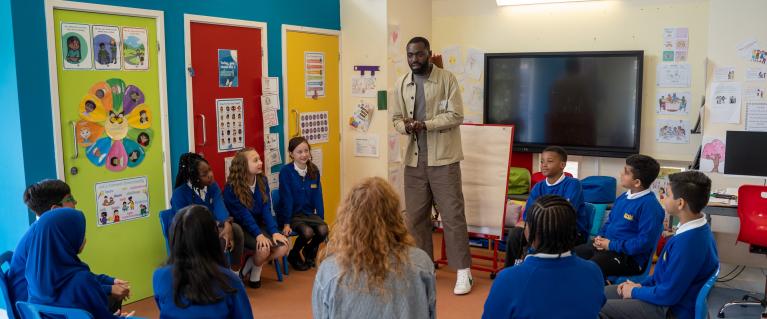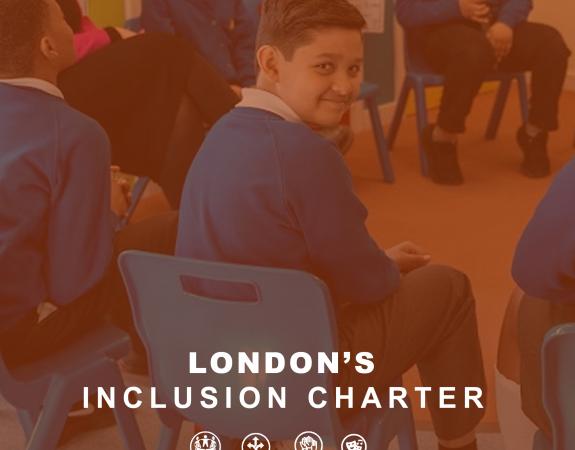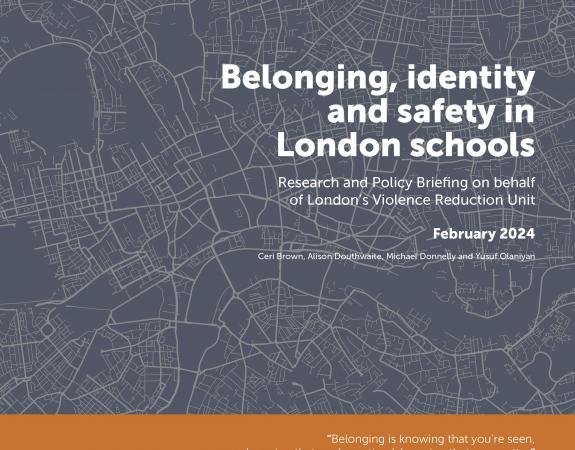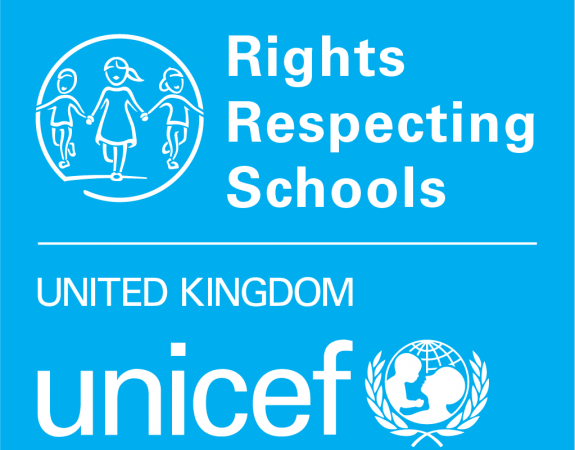
London's Inclusion Charter
Why a charter to keep children safer in school
We know that children and young people are safer in school. That is why driving up attendance and tackling rising school suspensions and absenteeism is at the heart of the Mayor of London’s Violence Reduction Unit’s (VRU) prevention work.
Since 2018-19, London has seen a 14 per cent rise in suspensions and a 106 per cent increase in persistent absenteeism. This has led to the equivalent of 1,430 children each day having lost learning in 2021-22 - up 71 per cent compared to pre-pandemic levels.
We need a London-wide commitment for change for the benefit of young people to keep them safe and to support them to thrive in school. This must be backed up by investment to support schools and the promotion of good practice already happening across the capital.
The VRU has led a partnership approach to develop London’s Inclusion Charter, built on the voices of young people and informed by schools, parents and carers, local authorities and education specialists.
London's Inclusion Charter

Read the charter
Informed by young people, schools, parents and carers, local authorities and education specialists.
Download London's Inclusion CharterThe Charter
- Prioritises education that is fully inclusive, fair and available to all.
- Promotes and invests in inclusive practices. Children’s rights and the experience of teachers are at its heart.
- Seeks to tackle the rise in suspensions and absenteeism through a set of agreed guiding principles around inclusion
- Shines a light on promising practice and celebrates inclusion already flourishing.
- Backed up by a new partnership with UNICEF and £1.4m investment to provide a universal offer of its Rights Respecting School Award programme free to all state funded schools and education settings in the 32 local authorities in London.
Our four guiding principles
- Embedding Equity and Diversity
- Students as Active Citizens
- Being Adaptable and Reflective
- Beyond Academic Achievement
Latest research on safety in schools

Research and Policy Briefing on behalf of London's Violence Reduction Unit
A research report for the Violence Reduction Unit by the University of Bath.
Download the reportResources and support to keep children in school

Supporting children to stay in school
Our offer to schools in London: Free access to UNICEF UK's Rights Respecting Schools Award programme.
Explore resourcesWatch our video: Your input matters
Our Young People's Action Group created their own charter based on the principles of London's Inclusion Charter. See how they did it and how young people and schools can follow their approach.
Playing this video will set cookies from YouTube/Google
Promising practice
The VRU is committed to shining a light on promising practice being delivered in schools across the capital. See examples on social media platforms. Search the hash tag #LondonsInclusionCharter.
Spotlight on
Inclusion in practice, not just on paper
At The Willow, we fit the school to the child recognising that not every child will fit into the ‘average’ – inclusion for us means meeting each individual’s needs –academic, behaviour or emotional.
To do this, it is essential that we have structures and systems in place. This is what helps everyone to feel safe. This ensures predictability and a level of certainty from which we all can operate, however, structures and systems cannot dictate how every child is treated.
When a child has obvious physical special needs then plans need to change to cater for their needs. When a child has a learning need then support is put in place to cater for that child through adapting and adjusting the curriculum and sometimes providing intervention lessons or an additional adult to support. These are generally well understood. We treat behaviour in exactly the same way – it is just like any other learning need it is on a continuum. There are children who understand the rules and easily slide into the appropriate behaviour systems.
However, there are children, just like with learning to read, who find learning to behave within the school setting more challenging. It is these children that need the school to adapt and adjust the ways of working to enable them to be successful.
At The Willow, we recognise that some children need more scaffolding of behaviour, they need more reminders, they need tools to help them to work with the system. Some need intervention sessions to help them to reflect back on incidents and try to work out how they could operate differently next time and some children need an additional adult to support them to be successful in the lesson. This adult will model and scaffold for them, gently moving the scaffolding away until the child is able to operate independently and successfully on their own. This is behaviour inclusion.
I have been a headteacher for coming on 24 years and I have never permanently excluded a child. I have given a very few fixed term suspensions, but nothing in the last six years. This was only to allow us to get our systems in place to ensure that when the child is reintegrated into school, they can be successful.
My favourite quote from our Ofsted June 2017 stated: ‘Staff share the Headteacher’s philosophy: ‘We never give up on any child’. I believe that this should be the mantra for all schools.
Dawn Ferdinand, headteacher
Focusing on improving inclusion
About us
Ark Schools is a multi-academy trust operating a network of 39 schools in London, Birmingham, Portsmouth, and Hastings. Ark is committed to ensuring that every child, regardless of background or prior attainment, achieves highly enough to have real choices at age 18. 43% of Ark’s students are eligible for free school meals, 16% are SEND and 46% are EAL.
The need
The post-COVID climate has created a ‘perfect storm’ for schools, exacerbating challenges around poor mental health, attendance, behaviour and undiagnosed SEND Needs.
Establishing a new role
Ark Schools established a new central role in September 2022, a Director of Pastoral and Inclusion. This role has brought together the areas of attendance, behaviour, SEND, safeguarding, mental health and Personal Development under one strategic umbrella for the first time as a network.
Developing a team
Creating this role has meant that a wider Pastoral and Inclusion team could be be formed with the pre-existing Head of Safeguarding and Head of Inclusion roles. As such, the network has been able to provide a model for schools as to how to triangulate inclusion work, acknowledging these key areas of school provision fundamentally interact and impact on one another and should not be seen in isolation.
Creating a Personal Development framework
A core part of the network’s drive on attendance and behaviour has been supporting schools in prioritising the development of the whole child, providing opportunities for all students that build a sense of safety, purpose, joy and belonging. In order to maintain our focus on this work, the network made the decision to elevate Personal Development as a strategic objective. A key part of this work has been developing a Personal Development framework, which has allowed schools to situate and assess their current provision for students beyond the academic. The framework mandates our foundational expectations for Personal Development provision, and provides guiding resources and support for schools to implement successfully.
The work so far
Leadership
Created learning networks for Secondary Vice Principals with responsibility for Pastoral and Inclusion, Senior Mental Health Leads, Extra-curricular leads and Personal Development leads. These networks meet regularly to receive update training and share practice. This is in addition to the SENCo and DSL learning networks that already existed.
Mental health and wellbeing
Facilitated training for all DSLs and DDSLs in the network on Trauma Informed Practice through Trauma Informed Schools UK.
Established a MAT partnership with Place2Be the leading children’s mental health charity that works directly with schools and students in supporting a whole school approach. Place2Be facilitated our key note session and training at the annual Network Day in October 2023, delivering training to all Ark staff on developmental trauma and emotional regulation.
Ensured that every school in the network has a Senior Mental Health Lead who receive termly training from Place2Be on topics such as Emotionally Based School Avoidance, SEMH, and LGBTQ+ and mental health.
Wider opportunities
Created a Universal entitlement to extra-curricular, driving an equitable experience for students across the network. This is in addition to our well established Ark Music and Ark Sports programmes.
Attendance
Created an attendance toolkit, providing guidance, support and exemplars. This is supported by half termly sessions delivered to Principals and Vice Principals about school attendance so there are regular opportunities to share best practice.
SEND
Launched a SEND Self-Evaluation so that schools can assess their provision for SEND and to help them develop a more strategic approach.
Launched a SEND Peer Review process, providing SENCos with an opportunity to work with colleagues across the network, facilitating peer review school visits on a termly basis to drive best practice and develop leaders of SEND within our schools.
Safeguarding
Worked with the NSPCC in rewriting our network safeguarding audit tool and process to ensure that a Graduated approach to inclusion and safeguarding was prioritised. Our audit tool now includes sections on Personal Development, Behaviour, support for students with SEND and encourages schools to reflect on their provision in a holistic, triangulated way.
Impact so far
Decline in mental health concerns raised in schools where therapeutic support has been in place for at least one academic year. This bucks a national trend of increasing mental health concerns.
Above national attendance rates for both primary and secondary schools and above London average attendance rates. Significantly above average attendance rates for Pupil Premium students.
Greater understanding of developmental trauma among staff to support a graduated approach to inclusion through an Assess, Plan, Do, Review process.
More nuanced conversations in schools around attendance, suspension and exclusion. Additionally there is more central capacity to support schools that have above national rates of suspension and exclusion.
Next steps
I am proud of the work we have achieved so far, but it’s also important to note that none of the progress we have made would have been possible without our dedicated team of school Principals who ensure the work is implemented successfully. We are still on a journey, and there is still much more work to be done, as is the case nationally with variability across and within schools. This year our focus remains on improving the Personal Development provision across the network, as well as developing a student culture toolkit which will provide further guidance, support and best practice examples to schools.
Lyndsay Harris, Director of Pastoral and Inclusion, Ark Schools
Whole school approaches to nurture with nurtureuk
Like thousands of teachers across the UK, staff at Heathcote School and Science College in Chingford have had a huge range of issues to tackle since pupils returned to school post-COVID.
Mental health and emotional wellbeing are the school’s biggest safeguarding concerns. Assistant Head Neil Hutchins explains just how much a focus on inclusion has benefited the whole school community, building positive relationships between pupils, teachers and parents/carers and ultimately improving attendance and reducing exclusions.
Neil said: “At Heathcote we pride ourselves on our inclusive approach to education. We have a very skilled pastoral and SEN team to meet the additional learning and mental health needs of our pupils. This approach is coupled with very high expectations that the pupils will be READY, RESPECTFUL and RESPONSIBLE at all times.”
Heathcote worked with nurtureuk as part of London’s Violence Reduction Unit’s Inclusive and Nurturing Schools programme through a whole-school nurturing approach.
Neil said: “We’re much richer and stronger as a school as a consequence of the work that we did with nurtureuk. Our attendance is where it's never been before and our exclusions are lower than they've ever been. We’ve got numerous pupils who have not been excluded because nurture has changed how we meet their needs – we make more reasonable adjustments, check-ins and space for them to voice their needs. They stay in mainstream, we are managing them and they are managing themselves.”
As part of the programme, Heathcote assessed pupils’ social and emotional needs using nurtureuk’s Boxall Profile® assessment tool, and several staff were trained on relational approaches, trauma informed practice and attachment theory.
Neil said: “The biggest impact for us as a school has been the development of relationships between staff and pupils. Pupils have opened up to us so much more. Nurtureuk helped us reflect on the impact positive relationships have on attainment.
“Not only has this built stronger relationships and given pupils ‘that one adult’, but it has also led to safeguarding disclosures, various referrals, and ultimately has kept more children safer, earlier. This was a huge undertaking in terms of time and resource but it has been hugely beneficial and well worth the effort.
“I can’t put a value on the type of work we’ve been able to do with nurtureuk. The small things we have done and changed as a result of this programme have moved mountains for our young people and the school.”
A Rights Respecting School
As a UNICEF Rights Respecting School, we put the Convention on the Rights of the Child at the heart of the school’s everyday practice. In the Convention, there are 54 articles that explain what children’s rights are. Articles 1-42 relate specifically to what children and adults can do to ensure all children’s rights are met. These rights will be learned, taught, practised, respected and promoted by the whole school community.
Each class created their own Class Charter. Children chose the five most important rights they believe should these will be respected. The Article of the Week is displayed in every classroom and shared on our website to ensure all children and parents are aware of the rights and understand them.
The difference between wants and needs is discussed in school so that children respect children’s rights appropriately. Assemblies remind children of their rights and how we can respect them in our everyday lives at school.
A committee of Rights Ambassadors promote children's rights and work towards making our school a better place. To become an Ambassador, children complete an application form that is signed by parents, showing that they are committed to the role. Ambassador teams meet weekly and have a number of responsibilities around the school to promote children’s rights, such as handing out Parking Pledges, collecting organic waste for the compost bin, planting outside the school, taking part in national initiatives such as the Great British Spring Clean and distributing games and toys at playtime.
We have worked closely with other Rights Respecting schools in London to share good practice and discuss global and local issues. We held our first Diversity Summit in 2023 and debated equality in sports. Four other Rights Respecting schools attended and shared presentations on how their school promotes non-discrimination (Article 2).
Teachers embed children's rights and global issues within the curriculum. This encourages our children to become global citizens who are fully aware of their rights and explore the rights of other children in the world who unfortunately are not able to access all of their rights. We take part in a number of Global Citizenship Days each year that focus on different Global Goals. We take part in a range of local, national and international fundraising activities and explore where the money raised goes and how we can make a difference in the world.
Since completing the Recognition of Commitment in 2014, we have noticed that our core value of ‘respect’ has become more embedded in our school culture. Children have a greater awareness of local, national and global issues, they are keen to speak out and share their opinions on important matters and know that they are listened to. We use the language of rights in our day-to-day teaching and it supports our behaviour and inclusion policies.
A behaviour journey
The school is very diverse – in terms of the prior attainment range of our students, their ethnic backgrounds, and the socio-economic circumstances that they live with every day. We serve some of the most deprived and some of the least deprived areas in the borough, with everything in between.
Just before I took on the headship, we did a survey about behaviour in the school. In that survey, only 55% of the staff agreed that behaviour was ‘well managed’. Just from being around the place every day, you could see that behaviour was not good. Lessons were not calm, and social times were a challenge. And so, as a new Headteacher, I faced a challenge – improve behaviour, fast. That needed to happen before we could do anything else.
The start of the behaviour journey for us was to define our ethos more clearly, and embed it quickly. That ethos needed to reflect the local community, and set a tone for the way we would approach behaviour. From the first day, I set about repeating our ethos of Kindness, Inclusion, Respect and Excellence constantly.
I tasked my new Deputy Headteacher with coming up with a new behaviour policy. Everything needed resetting. The first INSET day that September was all about how we would embed positive regard for young people through the ‘5 Cs’ of staff behaviour – Confidence, Calmness, Clarity, Consistency and Care.
A clear ‘in-lesson’ behaviour system of warning, behaviour point, lesson removal meant that every student knew what to expect, and this was backed up by a fully centralised sanctions system, including daily detentions led by Year Co-ordinators, with these sanctions determined by senior staff each day to ensure consistency. For me, the ethos is key to making this work. A strong ethos helps create a sense of belonging.
We work hard to send out constant signals of positive regard and inclusion to students, building strong relationships with the most challenging young people, and celebrating them and their contribution whenever we can. We also work continuously to train staff to work together like average speed cameras; never letting anything go and working as a connected network to maintain high expectations.
Sanctions are necessary and generally effective in a school like ours. But they need to be tracked, monitored and coupled with investigation into what is causing repeated poor behaviour. In the first year of my headship, we did 193 suspensions, which was significantly higher than the previous year. We needed to set a line and ensure students understood it. Since then we have steadily increased expectations, but reduced suspensions to 91 last year.
The majority of suspensions are one day, followed by a day of intensive support work, where appropriate, with the student. For me, suspensions act as a warning, as a signal to the student and the rest of the school community. I agonise over every one, making sure it will actually work for that student before making a final decision. I believe suspension can easily become a habit for senior leaders under pressure. Our aim will never be zero suspensions, but instead to do something that will actually work for the individual student and the school community.
We work with families to find appropriate provision where it is needed, and trying to find out whether there are underlying needs that aren’t being met. Our High Needs Panel and Behaviour Strategy groups meet regularly to look at the behaviour data and consider individual cases where current interventions are not working. Always, our ethos is central. For me, inclusion is achieved through clear messages to all about what our community looks like, and support for those who need it to live up to those expectations.
We have five Behaviour Support Officers, who build relationships with young people, look after and support those who are removed from lessons, carry a mentoring caseload, do duties around the school and work on investigations of serious incidents. I believe they are a crucial part of what makes behaviour at our school ‘exceptional’, in the words of Ofsted. We also have a Wellbeing Team consisting of three qualified counsellors, and a Family Support Team (including our own Education Welfare Officer) working to support families and secure strong attendance. Their work is invaluable in securing good behaviour and effective inclusion but is under threat as funding is pressured they are totally crucial to our success.
Five years later - In our most recent staff survey, 97 per cent of staff said that behaviour is now well managed. Ofsted and our parents agree, and new staff frequently talk about how well the systems work. The school feels like a different place, one where staff, students and parents know what is expected. There is always more to do; we are continuously reviewing systems and expectations, and always meeting new challenges. Securing genuine inclusion in a school is a never-ending task, but one we feel proud to work on every day.
Steven Hogan, Headteacher at Woodbridge High School
Get in touch
You can get in touch with us to find out more about London’s Inclusion Charter, including how you can get involved at [email protected]
Need a document on this page in an accessible format?
If you use assistive technology (such as a screen reader) and need a version of a PDF or other document on this page in a more accessible format, please get in touch via our online form and tell us which format you need.
It will also help us if you tell us which assistive technology you use. We’ll consider your request and get back to you in 5 working days.